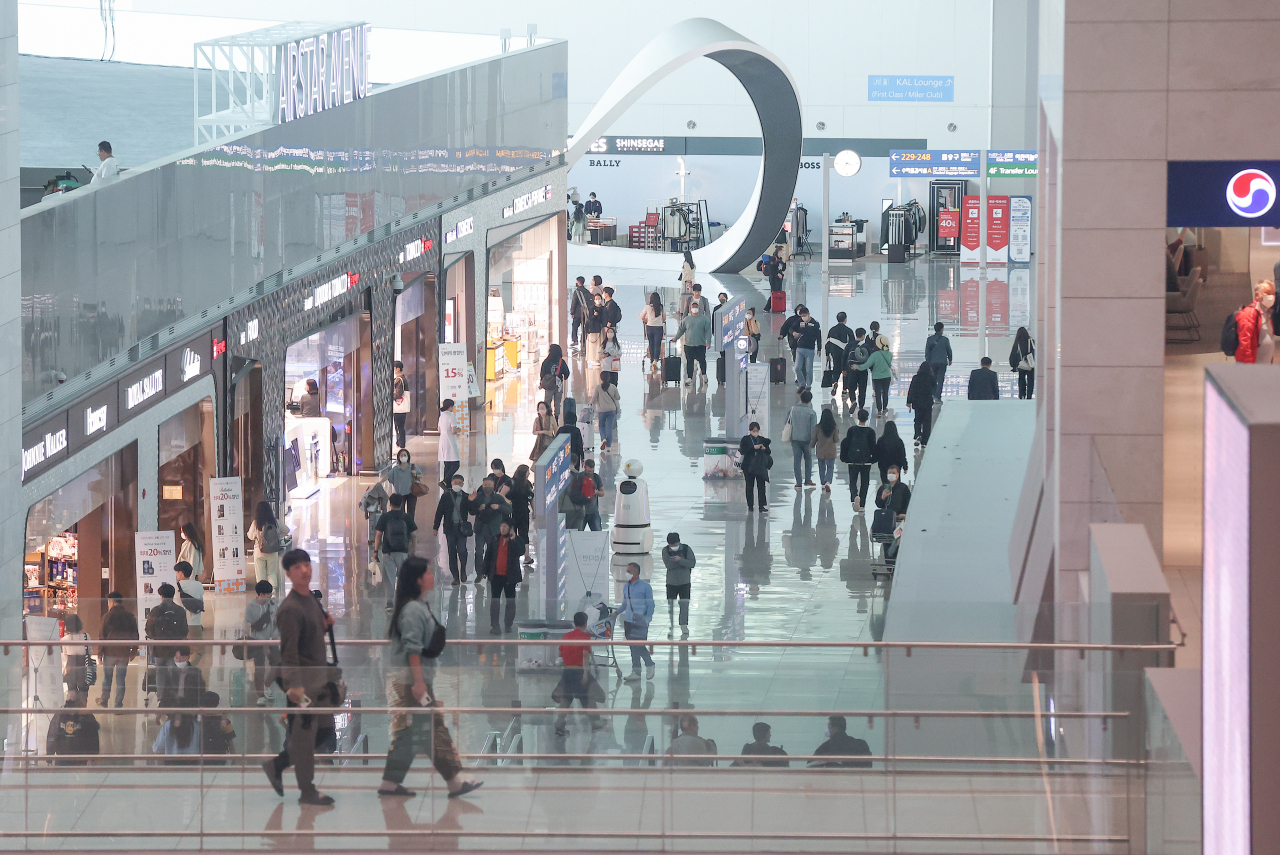
South Korea will temporarily exempt people from 22 visa-waiver nations, including the United States, Japan and Taiwan, from mandatory online travel permits and transit visa requirements as part of efforts to attract more foreign tourists and boost domestic demand, the finance ministry said Wednesday.
These are a set of measures aimed at attracting 10 million foreign tourists this year, a goal that could help spur private spending and revitalize the economy amid an economic slowdown, according to the Ministry of Economy and Finance.
The number of foreign visitors to South Korea hit a record high of 17.5 million in 2019, generating tourism revenue of $20.7 billion, according to data compiled by the Korea Tourism Organization. However, due to the COVID-19 pandemic, the number of visitors dropped sharply to 2.5 million in 2020 and 967,000 in 2021, before increasing to 3.19 million in 2022.
People from 22 nations, including Japan, Taiwan, Hong Kong, Singapore, Macau, the U.S., Canada and Britain, will be able to enter South Korea without getting a permit through the online travel permit system, the Korea Electronic Travel Authorization (K-ETA), by the end of next year if they visit the country for sightseeing and attending events.
The K-ETA is required for travelers from 110 visa-waiver nations, and the 22 countries were chosen as the entry rejection rate among their nationals "is quite low," according to the ministry.
South Korea also plans to resume transit visa exemptions for transit passengers from 34 nations, including the U.S. and European countries, to allow them to stay here for up to 30 days.
Group tourists from China can stay for up to five days in the city where the domestic airport that they use is located or the Seoul metropolitan area if they transit through the southern resort island of Jeju, about 450 kilometers south of Seoul, the ministry said.
The government will also ease conditions for visa issuance for group visitors from Vietnam, the Philippines and Indonesia, while creating new visa programs for high-income foreigners and for young people.
The number of international flights will be increased to the pre-pandemic level.
The government will increase flights to and from China to 954 per week by September from the current 63 flights, and those for Japan will rise to 1,004 per week from the current 863 flights.
South Korea also vowed to offer various large-scale events related to K-pop, shopping, food and other cultural items.
Major K-pop concerts will take place across the country from May through October, including the Seoul Festa 2023 slated for April and a concert to be held in the port city of Busan, 325 km southeast of Seoul, in May.
More online duty-free shops will open for foreigners, and discount coupons and various events will be available during the upcoming duty-free festival in May, according to the ministry.
The government plans to come up with a variety of tour programs centered on medical services, as well as major events on Korean alcoholic beverages, beef, seafood and various foods, it added.
The moves came as South Korea is struggling to spur its economic growth momentum amid weak private spending and dwindling exports during a global economic slowdown.
Retail sales, a gauge of private spending, decreased 2.1 percent in January, extending losses to a third month. The Bank of Korea forecast the South Korean economy to grow 1.6 percent this year. (Yonhap)
![[AtoZ into Korean mind] Humor in Korea: Navigating the line between what's funny and not](http://res.heraldm.com/phpwas/restmb_idxmake.php?idx=645&simg=/content/image/2024/04/22/20240422050642_0.jpg&u=)



![[Herald Interview] Why Toss invited hackers to penetrate its system](http://res.heraldm.com/phpwas/restmb_idxmake.php?idx=645&simg=/content/image/2024/04/22/20240422050569_0.jpg&u=20240422150649)
